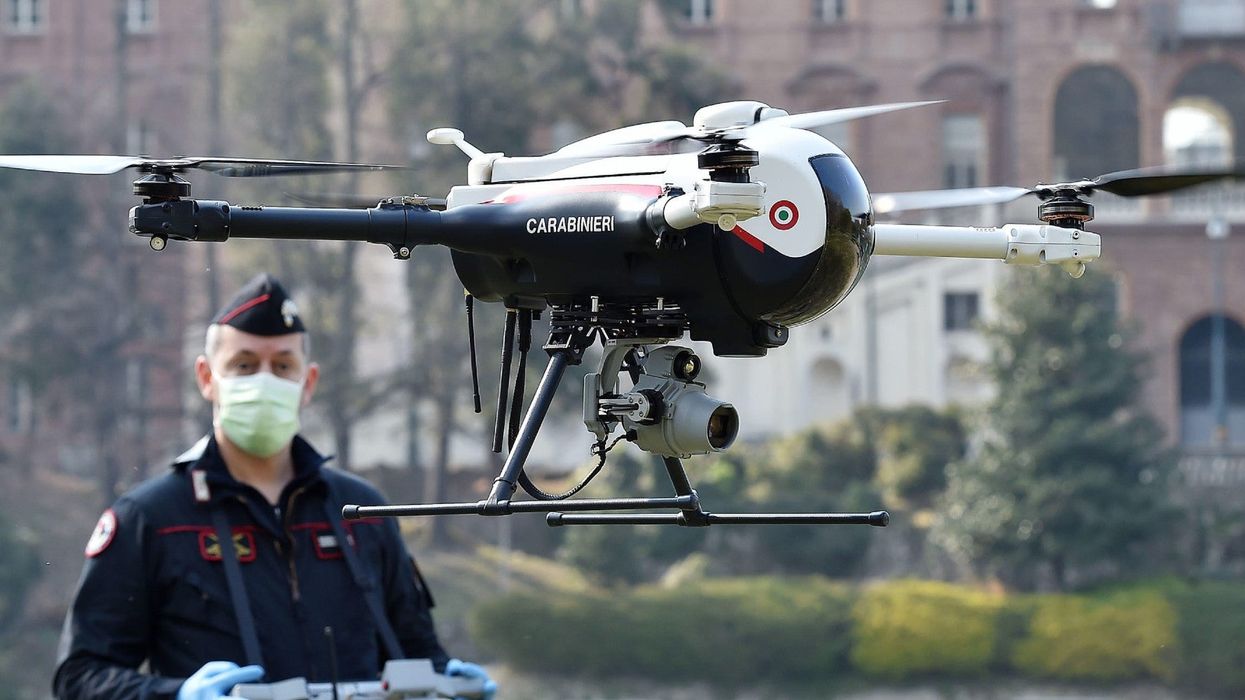Science & Tech
Isobel van Hagen
Apr 07, 2020
Over the past few weeks, countries around the world have used drones as a part of their response to COVID-19, despite potential public health hazards.
The drones are mostly being used to spray public places with disinfectants.
Justin Gong, co-founder of agricultural drone company XAG, told the World Economic Forum:
Compared with hand spray, drone spray has many advantages in terms of efficiency, consistency.
Depending on the application, drone spray can be fifty times more efficient than people spraying, he said.
Drones “can make the fight against COVID19 effective, efficient, fast, safe and less labour intensive,” Prem Kumar Vislawath, co-founder of Marut Drones in India, told Business Insider.
Health experts, however, see this visually impressive measure as another huge health risk, as well as a waste of time and resources.
“It’s a ridiculous image seen in many countries,” said Dale Fisher, an infectious diseases expert in Singapore who chairs the Global Outbreak Alert and Response Network coordinated by the World Health Organisation.
“I don’t believe it adds anything to the response and could be toxic on people. The virus does not survive for long in the environment and people do not generally touch the ground,” he told Reuters.
Wiku Adisasmito, a public health professor at the University of Indonesia said:
It is not good for skin, mouth and eyes, it will cause irritation
China was the first country to use this technique back in February:
Also in China, drones have been used to deliver medical samples, which can significantly reduce unnecessary human contact and speed up feedback for critical tests.
Across Europe, aerial spraying is largely banned. However, a group of drone experts is calling on the UK government to relax regulations on chemical spraying from the air during the pandemic, according to the BBC.
"The expert advice is that disinfecting outdoor spaces would not be an effective use of resources," a Department of Health and Social Care spokesman said.
So, it seems unlikely that drones will come to disinfect Britain any time soon.
Top 100
The Conversation (0)













